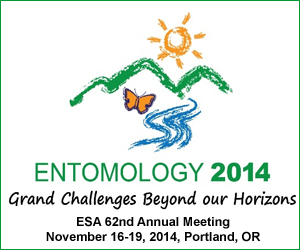Efficacy of a novel marigold plant extract for darkling beetle (Alphitobius diaperinus) control
Efficacy of a novel marigold plant extract for darkling beetle (Alphitobius diaperinus) control
Tuesday, March 11, 2014
The objective of this study was to control lesser mealworm (“darkling beetle”) adults and larvae (Alphitobius diaperinus) by subjecting them to varying levels of marigold (Tagetes minuta) plant extracts containing the phototoxic chemical alpha-Terthienyl inoculated in wheat bran substrates. Wheat bran (100g) was inoculated with 10 mL of 0%, 2.5%, 5.0%, 7.5%, 10%, or 12.5% marigold plant extract. Thirty-six 2.5cm x 5.5cm glass vials each containing five beetles and five larvae and 2g of inoculated wheat bran were arranged in a Latin Square design allowing six replications per treatment. Response variables of initial/final wheat bran weight and mortality and morbidity were assessed after seven days. Results indicated no mortality or morbidity among any of the treatments while final wheat bran weight exhibited a reduced feeding effect in wheat bran inoculated with extracts. Bran intake was highest for 0% distilled water control (0.083g) and lowest for 10% marigold extract inoculation (0.033g) (p=0.013) Marigold treatment comparisons with 0% control were significant (p≤0.023). Reduced feeding activity observed by the inoculation of marigold plant extracts as a control was encouraging but requires further study into the effects of feeding inhibition on female fecundity and larval development as a possible control.
Previous Poster
|
Next Poster >>


